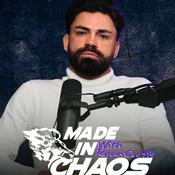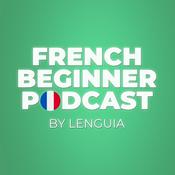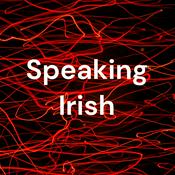221 episodes

Dante, Blake, and the Power of the Imagination
31/12/2025 | 1h 4 mins.
In this episode, John welcomes Mark Vernon to discuss his two books, 'Dante's Divine Comedy: A Guide for the Spiritual Journey' and 'Awake: William Blake and the Imagination'. They explore the profound psychological, philosophical, and spiritual insights offered by Dante and Blake, touching upon topics like pilgrimage, the imaginal, and the role of the imagination in renewing perception. Mark shares his experiences and how these works resonate with contemporary cognitive science and spirituality. The conversation delves deep into understanding the connections between ancient wisdom and modern thought. Mark Vernon is a writer, psychotherapist, and philosopher whose work explores the meeting point of spirituality, psychology, and philosophy. Based in London, his background in physics, theology, and psychotherapy shapes a multidisciplinary approach that bridges ancient wisdom traditions with contemporary understandings of the mind and meaning. 🔗 Learn more about Mark Vernon's work: markvernon.com Instagram Linkedin Awake: William Blake and the Power of Imagination — by Mark Vernon The Divine Comedy — by Dante Alighieri A World in a Grain of Sand — William Blake's poem reference ("Auguries of Innocence") — 00:00 Welcome to the Lectern 01:00 Discussing Dante's Divine Comedy 02:30 Exploring William Blake's work 04:00 Mark Vernon's background and inspirations 07:00 The philosophy and impact of pilgrimage 10:00 Dante's pilgrimage and personal experiences 19:00 The nature of Dante's poem 24:30 Addressing controversial topics in Dante's work 31:00 The in-between and the imaginal 33:30 Triston's predictive processing 35:00 The brain's predictive nature 35:30 Deep learning and pattern recognition 36:00 Metacognition and future self 38:30 Blake's visionary experiences 39:00 The power of imagination 41:02 41:02 "We don't hear sound waves — we hear meaning. That's how strong the imaginal is." 56:00 Confident imagination and fierce critique — The Vervaeke Foundation is committed to advancing the scientific pursuit of wisdom and creating a significant impact on the world. Become a part of our mission. Join Awaken to Meaning to explore practices that enhance your virtues and foster deeper connections with reality and relationships. — Ideas, People, and Works Mentioned in this Episode Pilgrimage as a Path of Transformation The Divine Comedy as a Map of the Soul Knowledge Through Transformation, Not Proposition The In-Between and the Imaginal Realm Cleansing the Doors of Perception The Renewal of the Senses Theoria as Pilgrimage and Contemplation Innocence, Openness, and Inner Vision The Descent as a Hidden Ascent William Desmond – Philosopher of the Between Charles Taylor – A Secular Age Henri Corbin – The Imaginal vs. The Imaginary Ibn 'Arabi – Sufi Visionary of the Heart Plato – Theoria and the Methu Aixis C.G. Jung – Synchronicity and the Soul's Descent Seeing God Again for the First Time – John Vervaeke The Bhagavad Gita, Chapter 12 – The Faces of God The Philosophical Silk Road and Pilgrimage as Practice The Camino de Santiago and Shikoku Pilgrimage The Covenant of Return – Integration and Homecoming Threshold and Passage as Spiritual Acts The Face of the World and the Call to Change Your Life — Follow John Vervaeke: Website | Twitter | YouTube | Patreon — Thank you for watching!

Cultivating Virtue in Educational Practice with Ethan Hsieh
17/12/2025 | 1h 15 mins.
To learn directly from Ethan Hsieh, John Vervaeke and Taylor Barratt, The Lectern is partnering with 5ToMidnight to offer a long form hybrid (online/in-person) practice program called TIAMAT-X. This program brings a full ecology of practices, endorsed by The Vervaeke Foundation to help you develop the capacity to… perceive what matters regulate in real time and act with clarity …through a cohesive method that weaves together mindful dialogue, embodiment, imaginal practice, and disciplined mindfulness. Learn more about the program here: https://www.5tomidnight.org/offerings/tiamat-x https://lectern.johnvervaeke.com/courses/tiamat-x In part three of the Lectern Dialogues series, John Vervaeke and Ethan Hsieh explore how virtue can be cultivated as a lived, embodied practice through an immersive ecology of education. The focus is on layered accounts of virtue — civic, purification, and illumination — and the role of ritual, altered states, and phenomenology in shaping meaning and sacredness. The conversation also addresses the risks of deification, authenticity loss, and cult dynamics, inviting a participatory, relational understanding of education oriented toward wisdom and agency. Ethan Hsieh Ethan Hsieh is a facilitator, educator, and philosophical practitioner whose work bridges performance, cognition, and transformative pedagogy. As the creator of TIAMAT—a three-tiered developmental framework—he integrates insights from performance practice, cognitive science, and dialogical philosophy to help individuals cultivate virtuosity as a way of life. Through immersive training containers and collaborative inquiry, he guides participants in mapping their inner experience, expanding their relational capacities, and enacting what he calls "postures of presence." Ethan's approach emphasizes participatory learning, metacognitive mapping, and the cultivation of agency through shared practice. His work with the collective 5toMidnight seeks to foster deliberately developmental communities grounded in relational ontology, where philosophical understanding becomes lived transformation. — 00:00 Welcome to the Lectern 02:00 Exploring virtue and sacredness 04:00 Layers of virtue and practice 06:00 Rituals and altered states of consciousness 10:30 Phenomenology and the sacred 18:00 Transformative insight and lived experience 30:30 Being-in-the-world and interconnectedness 38:00 Framework rejection and deification concerns 40:30 Ego, deification, and demonization 41:00 Virtue and the ego's filtration function 44:00 Addressing cult dynamics 46:00 Identifying healthy traditions and practices 51:30 Realness, resonance, and authenticity 55:00 Logos and the Good 01:06:00 The value of embodied experience — Follow John Vervaeke https://lectern.johnvervaeke.com https://x.com/DrJohnVervaeke https://www.youtube.com/@johnvervaeke https://www.patreon.com/johnvervaeke — Thank you for watching!

Silk Road Seminar - Nicole Baden
29/11/2025 | 1h 17 mins.
Thank you for joining us LIVE for this special Lectern Launch Event with Nicole Baden and Dr. John Vervaeke. Nicole Baden is a contemplative teacher, somatic practitioner, and long-time collaborator within the ecology-of-practices community. Her work focuses on integrating embodiment, meditative discipline, trauma-informed techniques, and transformative dialogue into cohesive pathways for personal and interpersonal growth. Nicole's teaching draws from a diverse lineage of contemplative traditions while remaining grounded in modern cognitive science, offering students practices that cultivate presence, resilience, and deeper relational intelligence. She serves as a central facilitator in the emerging praxis-based ecosystem surrounding John's work, helping individuals bridge the gap between insight and lived transformation. Nicole has contributed to multiple training programs, workshops, and practice communities dedicated to cultivating wisdom, awakening meaning, and fostering healthier patterns of being in the world. Her approach emphasizes sincerity, stability, and the cultivation of embodied understanding. Her new channel featuring Dharma talks, guided practices, and reflections: https://www.youtube.com/@TatsudoNicoleBaden https://youtu.be/csh7WDsEuC4?si=4qD2gfBUw2ds4JWA Dharma Academy — Nicole's Online School Courses, teachings, and practice resources offered by Nicole: https://dharmaacademy.com/ Crestone Mountain Zen Center Nicole Zen practice center in Colorado: https://www.dharmasangha.org/ Silk Road Seminars and Lectern Events are live gatherings where John weaves together his latest theoretical explorations, practical frameworks, and community initiatives with contributions from distinguished guests. These sessions stream live on YouTube and are followed by an exclusive Q&A where participants can ask questions directly to John and his guest. To be included on the Q&A guest list, you can join at the Gamma Tier (and above) on The Lectern: [https://lectern.teachable.com/p/lectern-lounge](https://lectern.teachable.com/p/lectern-lounge) Free Student Access: Currently enrolled university students at all levels (up to doctoral studies) receive free access to the Q&A. To join, email your proof of student identity to: [[email protected]](mailto:[email protected]) If you would like to support John's work purely out of goodwill, please consider joining the Patreon: https://www.patreon.com/johnvervaeke John Vervaeke: Website: https://johnvervaeke.com/ Twitter: https://twitter.com/DrJohnVervaeke YouTube: https://www.youtube.com/@johnvervaeke Patreon: https://www.patreon.com/johnvervaeke

LIVE TIAMAT X Q&A with Ethan Hsieh
26/11/2025 | 1h 56 mins.
Learn more about the program here: https://lectern.johnvervaeke.com/courses/tiamat-x Led by Ethan Hsieh, John Vervaeke and Taylor Barratt, The Lectern is partnering with 5ToMidnight to offer a long form hybrid (online/in-person) practice program called TIAMAT-X. This program brings a full ecology of practices, endorsed by The Vervaeke Foundation to help you develop the capacity to... • perceive what matters • regulate in real time • and act with clarity …through a cohesive method that weaves together mindful dialogue, embodiment, imaginal practice, and disciplined mindfulness. Learn more about the program here: https://lectern.johnvervaeke.com/courses/tiamat-x

Cultivating Virtuosity: Integrating Philosophy into Everyday Life
22/11/2025 | 1h 16 mins.
Led by Ethan Hsieh, John Vervaeke and Taylor Barratt, The Lectern is partnering with 5ToMidnight to offer a long form hybrid (online/in-person) practice program called TIAMAT-X. This program brings a full ecology of practices, endorsed by The Vervaeke Foundation to help you develop the capacity to… perceive what matters regulate in real time and act with clarity …through a cohesive method that weaves together mindful dialogue, embodiment, imaginal practice, and disciplined mindfulness. Learn more about the program here: https://www.5tomidnight.org/offerings/tiamat-x https://lectern.johnvervaeke.com/courses/tiamat-x In part two of the Lectern Dialogues series, Ethan introduces two ex-participants, now facilitators-in-training, Rens and Ellie, as the discussion continues on how to bring virtuosity to virtue and transform philosophical understanding into a way of life. The focus is on Ethan's TIAMAT process, a three-tiered pedagogical approach integrating performance and cognitive science into living practices. The conversation dives into the importance of overcoming habitual thought patterns, unlocking agency, and the participatory nature of this transformative work. Through shared experiences and reflections, they contrast the program's approach to that of traditional therapy, emphasizing complexification, relational ontology, and distributed trust and empowerment. The episode illustrates the depth and communal aspects of Tier 2 of TIAMAT and its impact on personal growth and relationships. Ethan Hsieh Ethan Hsieh is a facilitator, educator, and philosophical practitioner whose work bridges performance, cognition, and transformative pedagogy. As the creator of the TIAMAT process—a three-tiered developmental framework—he integrates insights from performance practice, cognitive science, and dialogical philosophy to help individuals cultivate virtuosity as a way of life. Through immersive training containers and collaborative inquiry, he guides participants in mapping their inner experience, expanding their relational capacities, and enacting what he calls "postures of presence." Ethan's approach emphasizes participatory learning, metacognitive mapping, and the cultivation of agency through shared practice. His work with the collective 5toMidnight seeks to foster deliberately developmental communities grounded in relational ontology, where philosophical understanding becomes lived transformation. — 00:00 Welcome to the Lectern 01:00 Introducing Ethan's collaborators: Rens and Ellie 02:00 The TIAMAT process: Integrating virtuosity and virtue 03:00 Ethan's journey and collaborations 07:30 Rens's and Ellie's backgrounds and contributions 11:00 Meta maps and philosophical frameworks 12:04 "Meta maps are a kind of structure for your metacognition to be able to at least have touch points to map your experience." 15:00 The role of participation and feedback 26:00 Therapy vs. TIAMAT: a comparative discussion 40:00 Exploring ambiguity and complexity 42:30 Therapy and empowering agency 46:00 Deliberately developmental civilization 47:30 Shadow work and its misconceptions 52:00 Tier two dynamics and personal growth 01:06:00 Facilitating and participating in growth — Follow John Vervaeke https://lectern.johnvervaeke.com https://twitter.com/vervaeke_john https://www.youtube.com/@johnvervaeke https://www.patreon.com/johnvervaeke — Thank you for watching!
More Education podcasts
Trending Education podcasts
About Dr. John Vervaeke
Listen to Dr. John Vervaeke, The Mel Robbins Podcast and many other podcasts from around the world with the radio.net app

Get the free radio.net app
- Stations and podcasts to bookmark
- Stream via Wi-Fi or Bluetooth
- Supports Carplay & Android Auto
- Many other app features
Get the free radio.net app
- Stations and podcasts to bookmark
- Stream via Wi-Fi or Bluetooth
- Supports Carplay & Android Auto
- Many other app features


Dr. John Vervaeke
download the app,
start listening.



































